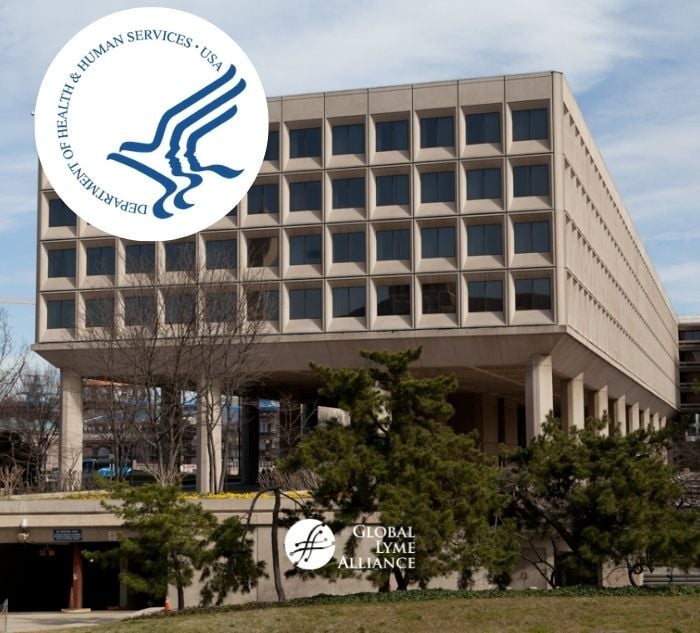
GLA announced today its new research grants for 2023. The studies, out of Tufts University, will look at why some patients develop chronic Lyme disease even after treatment, and the potential of an anti-inflammatory therapy for patients.
Global Lyme Alliance (GLA) is excited to announce its new research grants that were distributed during the summer of 2023. GLA received 48 Letters of Intent, describing some of the most exciting and cutting-edge research ideas we have ever considered for funding. After careful evaluation of projects for their potential impact on more accurately diagnosing individuals and treating and improving the lives of Lyme disease patients, 16 applicants were invited to submit full proposals. After rigorous review by our Scientific Advisory Board (SAB) and Research Advisory Committee (RAC) it was concluded that two of the 16 grant proposals were of high scientific merit to warrant funding. An additional three applicants were invited to submit revised proposals, which are currently under review. The total amount awarded for the first two grants is $680,221.

GLA's grant recipients include:
T anja Petnicki-Ocwieja, Ph.D., Tufts University
anja Petnicki-Ocwieja, Ph.D., Tufts University
Project Title : “Effects of B. burgdorferi-induced innate immune memory on long-term infection”
Project Description: Some people with Lyme disease stay sick even after taking antibiotics. One reason for this might be that their immune system gets suppressed and the body's defense system doesn't work as well against the infection. Suppression may result from changes in how the body's genes work, which affects how the immune system responds to the infection.
The goal of this newly funded project is to use a method called RNA sequencing to look at the genes needed for immune defense. This could help doctors understand why some patients develop chronic Lyme disease even after treatment with antibiotics. The hope is that by understanding these genetic changes, doctors can come up with better ways to treat people who develop chronic Lyme disease. This could make treatment more personalized and effective.
 Klemen Strle, Ph.D., Tufts University
Klemen Strle, Ph.D., Tufts University
Project Title: “Elucidating persistent symptoms after neurological presentation of Lyme disease”
Project Description: The causes of post-treatment Lyme disease or chronic Lyme disease are poorly understood. It's hard to find the best ways to help these patients because there are no set treatments that work for everyone. One idea that's becoming more important is that our immune system might not be reacting the right way, and our genes could be partly to blame.
A recent study by Dr. Strle showed that people with ongoing symptoms have higher levels of inflammation in their body even after antibiotics. He discovered that specific genes for inflammatory markers are turned on for too long in chronic Lyme patients. How our genes work and how our immune system behaves can determine how sick we feel.
The goal of this newly funded research project is to build upon what they’ve learned so far by studying more patients to understand this connection better. Confirming a role for inflammatory markers could pave the way for pilot human clinical trials that test whether anti-inflammatory therapy will benefit chronic Lyme patients. Similar therapies have been very effective in treating patients with other chronic illnesses.
GLA’s researchers are selected following a rigorous process using guidelines established by the NIH. Each grant proposal is evaluated by GLA’s highly regarded Scientific Advisory Board and must meet the same scientific standards that the NIH applies to its own research grant review process. Dr. Sellati, GLA's Chief Scientific Officer, helps oversee the grantees, making GLA dedicated and committed stewards of donor dollars.
"GLA and its roster of scientific and clinical researchers have had an outsized impact on answering questions, eliminating knowledge gaps, and funding R&D of more accurate diagnostics and effective alternative treatment options to improve the lives of patients suffering from chronic Lyme disease and other co-infections." said Dr. Sellati.
Global Lyme Alliance is proud to have awarded over $17 million towards our Lyme and tick-borne disease research program to date. We are continuing to fund projects from 2020 and 2021, which you can find more about here.
According to the Centers for Disease Control and Prevention, Lyme disease is a growing epidemic, with more than 476,000 reported new cases each year in the United States. GLA has gained national prominence for funding some of the most urgent and promising research while expanding awareness around the globe. GLA supports patients through every step in their journey, from finding a Lyme-treating specialist to a peer-to-peer mentor program and a wealth of resources and information on its website. GLA also offers an ambassador program for volunteers to raise awareness, create fundraising events in their area, or collaborate to advance GLA's mission. Visit us on social media or learn more at GLA.org.
***
STAY IN TOUCH:







